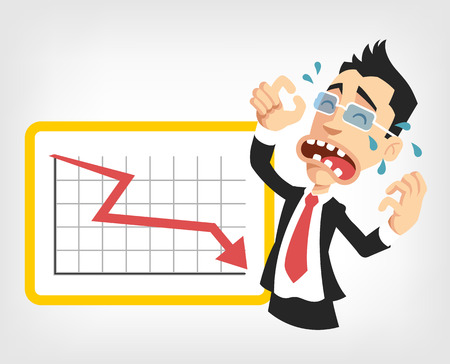An informed trader is a smart trader … so let’s talk about the SureTrader shutdown.
In case you missed the news, SureTrader is an offshore broker that recently had to shut down under suspicious circumstances. So it’s the perfect time to talk about offshore brokers.
Brokers are an extremely important part of the process of trading — they’re literally the gateway between you and trades. So choosing a good one is very important.
With the rising popularity of day trading, there are more and more traders on the lookout for brokers … and everyone wants a value.
The idea of a broker that’s cheap and allows you to avoid the PDT can be tempting, hence the popularity of offshore brokerages like SureTrader.
But is it really worth it?
Ultimately, the choice is yours … but there are some definite concerns that traders should have with offshore brokers like this. Read on to learn about some of the dangers associated with these low-priced brokers and how to stay safe!
Table of Contents
SureTrader: A Cautionary Tale
Several days ago, a popular off-shore broker called SureTrader began telling their clients that they’d be shutting down or transferring their accounts. They didn’t make a big thing of it … but it kind of was a big deal.
If you happened to log into your account over the weekend, you were greeted by a pop-up message on the site that read, “…without notice and reason, our clearing broker has recently changed the terms of our relationship. In light of this, there will be changes to your trading account.”
Well, that was sudden.
Two options were offered: either opt-out and close your account. The second, which happened automatically if the trader took no action, was that their account would be transferred to a new broker: F1Trade.
Then, as of November 4, “…all clients will be placed on closing transactions only. If you have open positions, you will have until Friday, November 8 to close out these positions in your account or SureTrader reserves the right to liquidate those positions…”
In short? If you had open positions with SureTrader, you had to hurry up and exit them.
Will F1Trade Be Any Better?
Maybe you’re thinking: but change is inevitable … things like this shift every now and again, right? No big deal.
The problem here is that F1Trade might not really be any different from SureTrader. It’s possible that they’re just shape-shifting and rebranding to avoid scrutiny from regulators.
For one thing, when you go on the new website, it’s eerily similar to the SureTrader site. Sure, there are some differences, but many of the images are the same and the content hasn’t changed appreciably. Interesting.
This has plenty of people thinking that F1Trade could just be a rebrand. Let’s go through some of the notable differences:
Location: The actual registered location of F1Trade is different than SureTrader. It’s registered in St. Vincent and the Grenadines — SureTrader was registered in the Bahamas.
Why does that matter? Because it isn’t necessary to hold any financial services licensure or authorization in St. Vincent and the Grenadines. No, that doesn’t sound shady at all…
CFD Broker: Another important difference is that F1Trade is what’s called a CFD, or contract for difference broker. Whoa, what does that mean?
A CFD involves a settlement between the opening and closing trade, which is settled in cash. CFDs use leverage or margin … meaning investors initially only have to ante up a small amount of the trade.
This is kind of like the days of Jesse Livermore, when enterprising traders worked out of so-called “bucket shops” – seedy off-site trading establishments.
This doesn’t have to be a shady trading technique, but it often is. CFD trading is considered an advanced strategy to be used by experienced traders. It’s legal in places like Canada, the UK, and Australia … but it’s not allowed in the U.S.
Given these changes that allow the broker more leeway and the lack of changes in terms of the company website, philosophy and look, it does seem plausible that this is just a loophole escape route for SureTrader. And it’s possible that they’re doing this to avoid regulators coming down on them.
Shady Brokers = Shady Results
Who you decide to use as a broker is a personal decision. And this post isn’t necessarily intended to put just SureTrader on the spot … they’re just being used as an example of the practices that can go on in the trading world.
Cheap Doesn’t Mean Better
It’s understandable that as a new trader, you want to maximize your profits and minimize your expenses.
It’s also understandable that things like high commissions and the PDT rule might seem like they’re seriously cramping your mad trading style.
The siren call of offshore brokers can be mighty tempting. With the promise of no PDT rule and low commissions, they can seem like the perfect solution.
But you’ve heard the adage that if it seems too good to be true, it probably is … so let’s unpack some of the issues that can come with these alleged selling points for offshore brokers.
The PDT Rule Isn’t a Bad Thing
If you’re not familiar, the PDT rule is the Pattern Day Trader rule.
Among other things, it states that says that if your account totals less than $25K, you can only make three-day trades within a rolling five-day period.
To be clear, day trades are trades where you enter and exit a position within the same trading day. You can trade to your heart’s content with holds that are overnight or longer.
If you’re exploring day trading or scalping, the PDT rule can seem like an unfair punishment. It’s generally considered a huge accomplishment for day traders to break through the boundaries of the PDT rule.
However, for new traders, the PDT could actually be a pretty good thing.
Remember: The PDT rule wasn’t created just to torture traders with small accounts. It was designed to protect inexperienced investors.
Among other things, it forces you to SLOW DOWN and really think about trades before jumping into positions. Taking a time-out to formulate a strong trading plan is always a good idea, no matter how big your account is or how experienced you are.
Without that barrier, new traders tend to jump into too many ill-advised trades without thinking … and that’s the type of stuff that will blow up your account fast.
Psst: There’s a great episode about the PDT rule on the SteadyTrade podcast … don’t miss it!
Yes, using an off-shore account to avoid the PDT rule might be tempting. But honestly, the right setups won’t come along super frequently, especially while you’re still getting the hang of trading. So there might be a benefit to being slow but steady and sticking with limited trading for a while.
Overtrading is a very real thing, and it can wreak havoc on your account. And it can get you into some really bad habits that are hard to break.
Instead of making more trades, focus on making SMART trades. Really, that’s what will help you grow your account over time!
Low Commissions Can Cost You in Sneaky Ways
Commissions! They’re the worst, right? The fact that more and more brokers are going commission-free is the best thing since cronuts, right?
But really, commissions shouldn’t be your key focus as a trader.
No … this isn’t to say that paying tons of commissions is awesome. But if you’re focusing on the right trades and have a broker that can execute trades quickly and effectively, it can have a way of working out in your favor.
If you’ve made an intelligent trading plan and focus on sticking to it, the commissions should overall be negligible.
If you have a trustworthy broker who’s on the level, executing your trades in a timely fashion, and where you feel secure, it could be worth paying a little extra. It’s well worth it to work with a trustworthy broker versus saving $5 or so per trade with an offshore broker.
Just look at what happened with SureTrader … how safe does that feel?
Additionally, you’ve always got to read the fine print. Just because a broker has low or no commissions doesn’t mean they’re not going to get cash from you. There could be fees associated with other services that add up to more than traditional commissions.
The Trouble With Offshore Brokers
In the U.S., we have a little something called the Securities Investor Protection Corporation (SIPC for short). It’s sort of like the equivalent of the FDIC, but for brokerage accounts. Offshore, these protections aren’t necessarily in place.
In general, the lesser regulations for offshore brokers means that underhanded and shady behavior reigns supreme.
Let’s circle back to SureTrader…
Their parent company, formerly Swiss America Securities and now MintBroker International, Ltd., has been on the SEC’s radar for a few years.
Then, in September, the Securities Commission of the Bahamas put SureTrader on suspension for five days. The CEO of MintBroker, Guy Gentile, is no stranger to run-ins with regulators in the finance world. He got in trouble with the SEC for his involvement in this pump and dump scheme back in 2007–2008, too.
Now, he’s making the claim that the SEC’s concerns are unfair. Yeah, there are court battles going on, too.
Sure, you might have to pay higher fees and deal with the PDT rule if you stick with one of the bigger brokers located stateside. But the safety you get for these added costs/annoyances could be worthwhile for you … especially if you can avoid a dramatic fallout like what happened with SureTrader.
Focus on What Matters
If you’re trading with a small account and the first things you look for in a broker are low commissions and the potential for unlimited day trades, you’ve got to shift your mindset.
Why? Because these so-called “perks” could cost you big time in the long run.
Yeah, the PDT rule limits how many day trades you can execute during a specific time period.
But while unlimited day trades might seem like a great thing, this freedom can lead to overtrading. Overtrading is like the equivalent of throwing a bunch of stuff at the wall and seeing what sticks. It typically lacks focus, it’s hard to keep track of effectively, and it’s usually where traders make dumb mistakes.
It’s better to be discerning with your trades. Do a good amount of research, and really feel good about your trade. Babysit it – be willing to cut losses or take profits when needed.
Low commissions can lead to overtrading too. Is it really worth saving a couple of bucks in the long run if you’re losing big overall because you’re spreading yourself too thin?
Instead of getting tunnel vision about things like this, focus on educating yourself, making intelligent trades, and keeping your account safe!
Yes, it’s fine to aspire to rise above the PDT rule. It’s also great to keep an eye on commission costs. But don’t do these things at the cost of your account’s safety.
Are Offshore Brokers Worth the Risk?
Using an offshore broker probably won’t save you enough money to make a huge impact in your trading.
In fact, if you start overtrading, they could actually be more expensive than a more reputable/major brokerage in the long run.
Additionally, offshore brokers are notorious for things like spotty service, a lack of customer service, hidden fees, and faulty trade executions. Who wants that?
… is it worth it?
Choosing a broker is a personal decision. It’s important to be sure that you’ve done your research before settling with one.
Offshore brokers have a reputation for ill repute with pretty good reason. Is that really where you’re trusting your account?
Is Bigger Better?
So when it comes to choosing a broker … is bigger better?
Well, let’s discuss.
Right now, it might be tempting to think yes, because a lot of bigger brokers have gone “commission-free” themselves. But take note of the quotes around “commission-free.” There’s no free lunch, and there are usually other ways that brokers get money out of you via fees and other charges.
Any broker probably wants you to trade more because they make more that way. That’s pretty much true across the board.
But with a bigger broker, what you do get is peace of mind. They’re big, stable, and established companies. They have to adhere to SEC regulations.
Sure, even big companies can fail, but it’s a lot less likely that they’ll experience anything like SureTrader debacle.
There’s No Shortcut to Trading Success
This might be a huge bummer to all the new traders who come into trading with a get-rich-quick mentality.
In spite of what some guy told you or what you want to believe, the stock market is NOT a place to get rich quick.
It’s about slow but steady growth.
To really become a successful trader, you’ve got to…
- Put education first. StocksToTrade Pro is our extensive trading community. It’s a great resource for education, mentorship, and a community of like-minded traders. Why do it alone when you can do it with friends?
- Scan daily. Even if you’re not trading every day, you should scan the markets every day. Not only does StocksToTrade have incredible charting software, but it can help you find the biggest gainers, create watchlists, and track the news.
- Practice, practice, practice. It’s not a matter of memorizing patterns and making bank. The stock market is ever changing, and you need to be able to adapt. You can test out new strategies with paper trading, or start with small positions and scale up.
- Technology is your friend. We’re living in an incredible age of tech … why not put it to good use in your trading? Check out StocksToTrade’s awesome service powered by Oracle’s super-smart algorithms. Find great contenders for trades every day!
Yes, there are a few outliers who will find success faster. But these are the exceptions, not the rule. Most successful traders get there the hard way: through plenty of diligence, hard work, and practice.
Trade Smarter … Not Cheaper!
It can be tempting to think that an offshore broker is going to open doors for you as a trader. However, as you’ve learned in this post, the risks could outweigh the perceived benefits.
Your broker is extremely important, so take the time to do your due diligence and find a trustworthy one. Yes, try to keep the commission expenditures down, and focus on growing your account … but take it slow!
Rather than focusing on nickel and diming the system, focus on making intelligent trades! Remember, it’s a sprint, not a marathon. You don’t want to learn a hard lesson that could put your account in jeopardy.
How do you feel about offshore brokers? Leave a comment with your thoughts!




